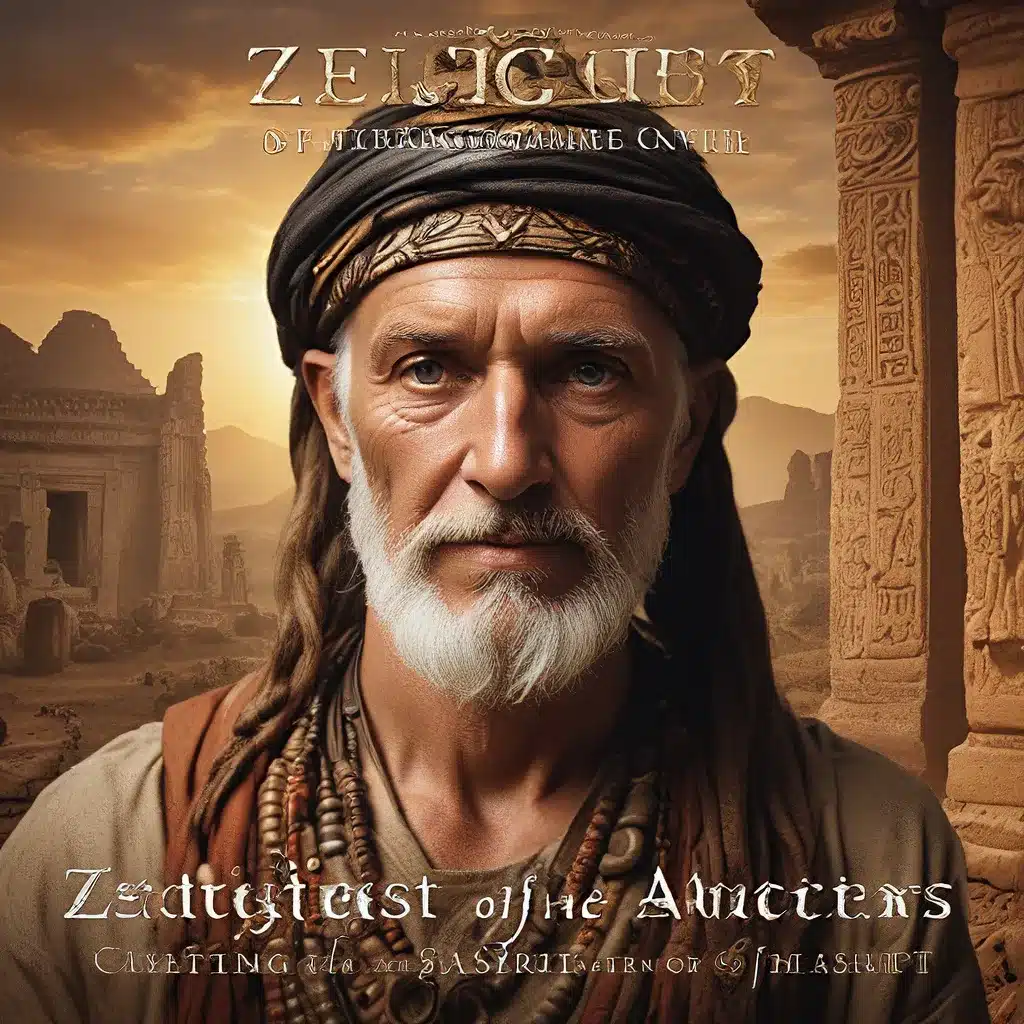
Unlocking the Mysteries of Ancient Civilizations: A Journey through Archaeology and Cultural Exploration
The Captivating Voices of the Past
Imagine stepping back in time, immersing yourself in the sights, sounds, and sensations of a bygone era. This is the allure of historical fiction, a genre that allows us to transcend the boundaries of the present and connect with the zeitgeist of the ancients. But how do we truly capture the essence of these long-vanished cultures, and what insights can we glean from the archaeological record?
One of the fundamental challenges in bringing the past to life lies in the way we choose to voice our historical characters. The ancient Greeks, for instance, did not speak in the refined, Downton Abbey-esque tones that have often been the default in historical narratives. Instead, as author Ferdia Lennon suggests, their speech patterns may have been more akin to the Hiberno-English of contemporary Dublin, a linguistic blend that reflects the influence of the native language on the colonial tongue.
By embracing these unexpected vocal flourishes, Lennon not only injects a sense of authenticity into his work but also opens up a window into the complex social and cultural dynamics of the ancient Greek world. Just as we today have a tapestry of regional accents and dialects, so too did the ancient Greeks, each reflecting the nuances of their local identities and power structures.
Uncovering the Ordinary Lives of the Ancients
But the challenge of historical fiction goes beyond simply capturing the sound of the past; it also requires a deep dive into the everyday experiences of those who lived it. As Lennon notes, the extant historical records of the ancient world are largely the domain of the elite, leaving the lives of the common people largely unrecorded.
This void in the historical record presents a unique opportunity for writers of historical fiction. By delving into the comedic works of Aristophanes, Lennon found a glimpse into the raucous, unguarded speech of ancient Athenians – a far cry from the lofty oratory of statesmen or the mythic heroics of Greek tragedy. In these comedic texts, the vibrant, messy, and ever-present lives of the ordinary people come to the fore, offering a more complete and authentic tapestry of the ancient world.
Bridging the Past and Present
But the challenge of historical fiction extends beyond simply capturing the voices of the past. It also requires a deft balance between historical accuracy and contemporary resonance. As Lennon suggests, using modern accents and idioms as analogues for the ancient speech patterns can help readers connect with the characters on a more visceral level, allowing them to inhabit the characters’ present rather than merely observing from the outside.
This approach is not without its critics, as exemplified by Lennon’s own experience in the writers’ workshop, where a fellow student objected to the use of an “Irish” voice for an ancient Syracusan. However, Lennon’s defense – that the ancient Greeks did, in fact, “sound Irish now” – highlights the power of using the familiar to illuminate the unfamiliar, and the importance of embracing the present in order to understand the past.
The Allure of Archaeological Discoveries
While the realm of historical fiction offers a unique opportunity to explore the human dimension of ancient civilizations, the field of archaeology provides the foundation upon which these narratives are built. From the unearthing of the Discobolus statue in ancient Greece, which depicts an early form of disc-throwing, to the discovery of clay discs believed to have been used for recreational play by Native American communities, the archaeological record is a rich tapestry of clues that shed light on the cultural practices and pastimes of the ancients.
The evolution of disc sports, for example, can be traced back to these ancient origins, with the Frisbie Pie Baking Company in Connecticut and the Yale students of the 1940s playing a pivotal role in the development of the modern Frisbee. These seemingly mundane artifacts and practices not only illuminate the recreational lives of our ancestors but also challenge our preconceptions about the nature of ancient civilizations.
Reimagining the Past, Shaping the Future
As we delve deeper into the archaeological record and the realm of historical fiction, we are presented with an extraordinary opportunity to reimagine the past and, in doing so, shape our understanding of the present. By embracing the voices, experiences, and cultural practices of the ancients, we can gain a more nuanced and inclusive perspective on the vast tapestry of human history.
Through the work of authors like Ferdia Lennon and the tireless efforts of archaeologists around the world, we are continually expanding our horizons, uncovering new facets of the past and challenging our assumptions about the nature of ancient civilizations. In doing so, we are not only preserving the legacy of these long-vanished cultures but also inspiring us to explore our own place within the ever-evolving zeitgeist of the ancients.
Take a journey with us to The Lost Kingdoms and discover the captivating stories that lie buried within the sands of time, waiting to be unearthed and brought to life.


